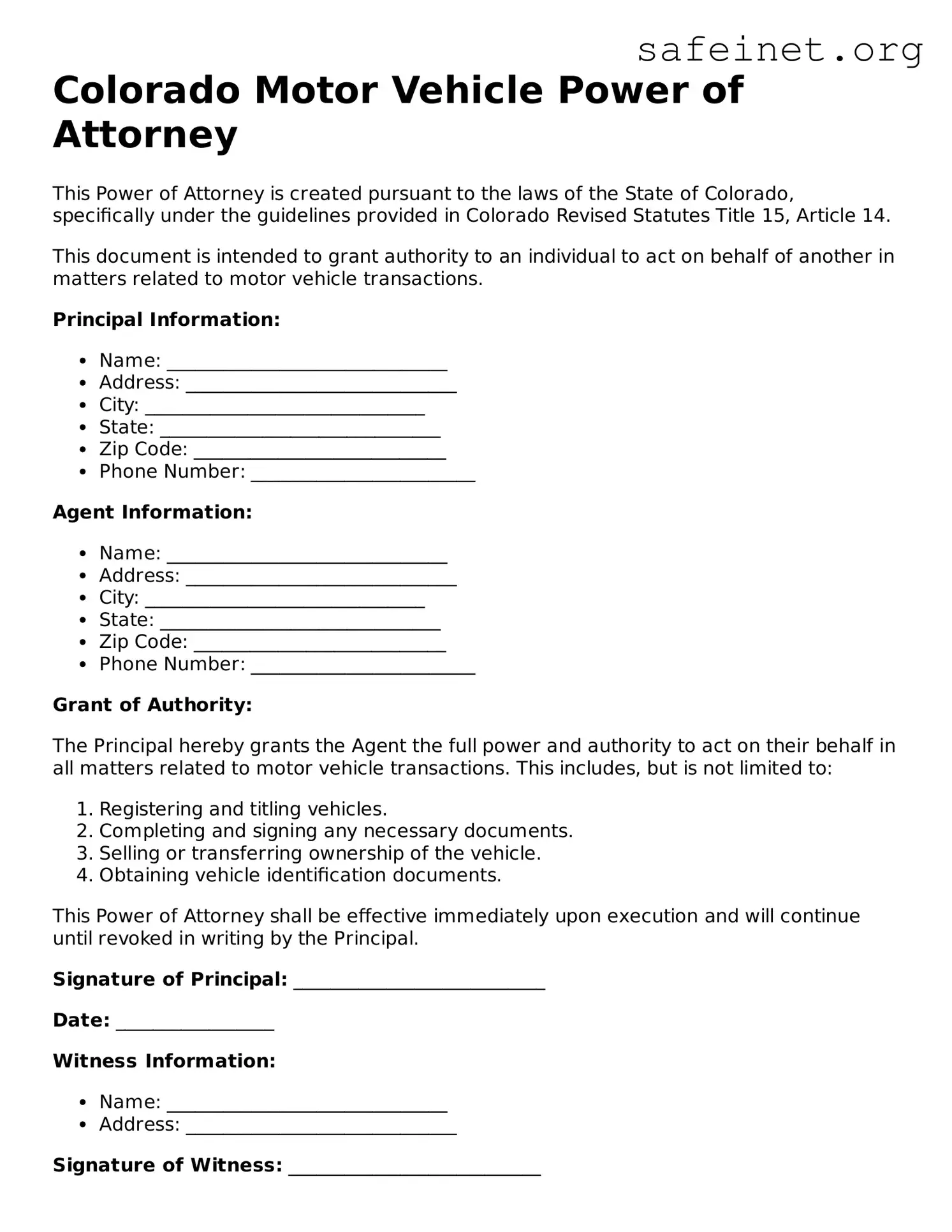What is a Colorado Motor Vehicle Power of Attorney form?
The Colorado Motor Vehicle Power of Attorney form is a legal document that allows one person to designate another individual to act on their behalf in motor vehicle-related matters. This can include tasks such as registering a vehicle, transferring ownership, or obtaining documentation from the Colorado Department of Motor Vehicles (DMV). It is a useful tool for individuals who may be unable to handle these tasks personally due to various reasons, such as living out of state or being incapacitated.
Who can be appointed as an agent in the Motor Vehicle Power of Attorney?
Anyone can be appointed as an agent in this form, as long as they are a competent adult. This means that the person you choose should be at least 18 years old and capable of making decisions. Many people opt to appoint trusted friends, family members, or business associates to act in their stead.
How do I complete the form?
Complete the form by providing necessary details such as your name, the name of the agent, and the specific powers you wish to confer. It’s imperative to include a description of the transaction or power being granted. After filling out the form, both you and the agent must sign it, and it may be a good idea to have it notarized to ensure validity and enhance security.
Is notarization required for the form to be valid?
While notarization is not explicitly required for the Colorado Motor Vehicle Power of Attorney form, having it notarized is highly recommended. Notarization can help verify the identities of the parties involved and provide an additional layer of authenticity, which may be useful if any disputes arise later or if the DMV requests it.
Can I revoke the Power of Attorney at any time?
Yes, you can revoke the Motor Vehicle Power of Attorney at any time, as long as you are of sound mind. Simply create a revocation document that clearly states your intent to cancel the powers granted. Once completed, communicate this revocation to your agent and any relevant parties, including the DMV, to ensure the cancellation is recognized.
What happens if the vehicle owner dies before the Power of Attorney is used?
If the vehicle owner passes away, the Power of Attorney becomes invalid. The authority granted to the agent ceases upon the owner's death. In such cases, the ownership of the vehicle would become part of the deceased’s estate, and the transfer or management of the vehicle would need to be handled according to probate laws.
Are there any limitations on the powers granted in the Motor Vehicle Power of Attorney?
Yes, the powers granted can be limited based on the specifics outlined in the form. You can specify particular actions the agent is authorized to take, such as selling a car only, or you could grant broader authority for all motor vehicle transactions. The key is clarity in what you allow and any conditions that may apply.
